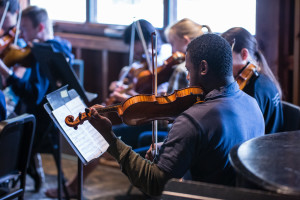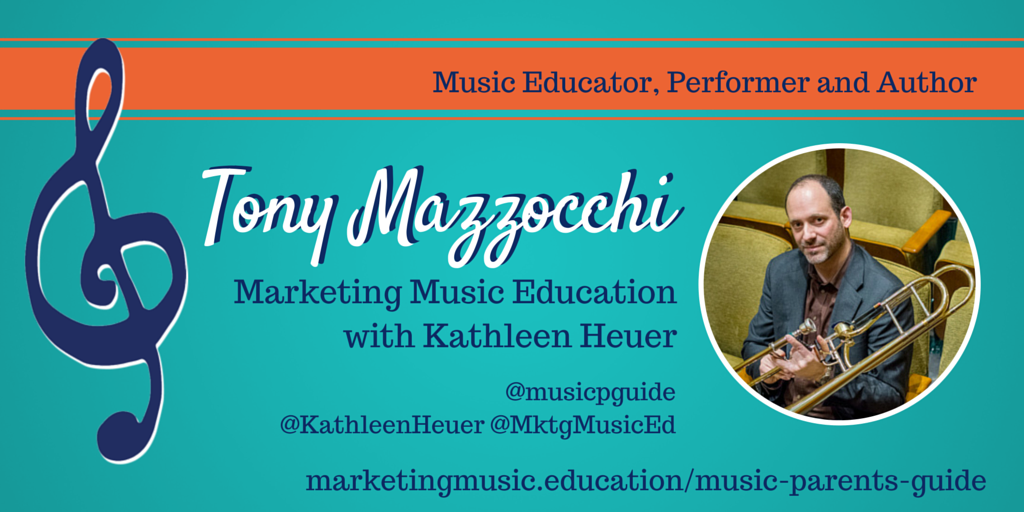 As sure as the sun rises and sets, every few years our government rolls out a new brand of education reform. Some legislation is epic (NCLB, anyone?); other laws “chip away” at our education system in small chunks.
As sure as the sun rises and sets, every few years our government rolls out a new brand of education reform. Some legislation is epic (NCLB, anyone?); other laws “chip away” at our education system in small chunks.
The Every Student Succeeds Act (ESSA) has trumped NCLB as the latest panacea for educating all of our children, and in turn has given music education a small seat at what was once reserved as the “STEM table”. But is music and arts education ready to sit at this table? Are we prepared to carry the torch of whole school reform as artists and musicians and show our test-driven, rubric loving, number-crunching politicians, administrators and colleagues the way towards educating the great minds of the future?
We are not ready. Not yet.
While this is an incomplete list below, here are 3 reasons why the music world — and its educators — are not quite ready to lead whole school reform, but how we can begin to get there sooner rather than later:
We have a problem with ideology in music education. Most non-musicians do not have strong belief systems when it comes to the role of music in their children’s education; that is, they do not think ideologically. And how could they, really? Music education has never been present at the forefront of their minds, and most people have never experienced music as a nucleus of children’s daily school lives for any extended period of time.
While music professors sit in their lecture halls and studios pontificating on why music should or shouldn’t be part of school curricula; how it should and shouldn’t be implemented or taught; how it should or shouldn’t be advocated for, etc., there are people running our school system who could not care less either way. I’ve been there: in district administrative team meetings; in Board of Ed open and closed sessions; in teacher’s union gatherings; in informal teacher meetings. I’ve been to PTA meetings; township council sessions, and even band booster meetings. I’ve watched the news on television, and I think we have all seen the presidential debates recently. It saddens me to say that most of these groups either have different ideas about where music education fits in schools, or — in most cases — do not care about the nuances of music education, or even if it should exist in our schools at all.
Meanwhile, educators continue to engage in “heady” arguments about our craft, such as music ed being chameleon-like and seeking to latch on to educational fads and peripheral benefits. The fear is that when the education landscape changes we will lose reputability due to the fact that we will have to change our arguments to suit a new situation. It’s ironic that this type of argument is being made at a time where music programs are being cut left and right regardless. Either way, we have nothing to apologize about when it comes to the fact that music education has been doing all the things that other educators have been seeking to do all along; understanding by design, differentiated instruction, and all the other “edu-speak” terms we hold so dear in our system. Yes, learning to be a musician has a ton of benefits — we all need to deal with, celebrate, and explain it every chance we get.
It is up to us and us alone to strengthen our grassroots efforts to bring music in to every children’s life — it’s not until then will everyone see the transformative power of music in the present, and not care so much how we got there.
The need for convergence. Music educators have far too much disagreement in their own ranks. There are educators huddled in their ideological corners about everything; from which method to teach note reading and rhythm to use; whether we should even teach note reading; how to advocate properly for music — the list goes on. Then we have arts organizations that develop Teaching Artists largely due to the fact that they believe music educators need more support with their musicianship. Concurrently, many professional musicians still believe a critical mass of music educators are the epitome of “those who cannot do … teach.” We are all over the place.
We have to be honest with ourselves about these facts before we can meet on some common ground — and meet we must. If we fail to do this, we will never build a strong music education system in our schools. Although it’s fine that people from all walks of life in the music profession disagree on many things, it’s crucial that there is some convergence on the issues in order for us all to be ready for when and if schools choose to increase their arts offerings.
Ultimately, I believe that convergence happens in the classroom. When students are engaged in music, be it playing instruments or singing, their unique experiences will dictate the effects music will have in their lives; mentally, physically, and even spiritually. The effects of music education on a critical mass of our population today will change the way we advocate for it for future generations. At that point, it will not matter how music instruction “came to be” in the lives it touched and which adult arguments occurred along the way to get it there.
Let’s for argument’s sake imagine that a music program is only kept in a school because a principal has been convinced that music improves test scores. I have never spoken to a child who is in band or orchestra class who, when I ask why they chose to continue playing their instrument they say, “because it makes me better in math.” Additionally, I have never spoken to a music teacher who says that they teach music because it makes kids better at something else. What teachers bring to the classroom and what they bring to the advocacy table in the surrounding community is sometimes different — and that’s okay.
The need for great teachers. Institutions of higher education need to make it their primary goal to train great musicians, and in the process teach students how to communicate effectively with families, teachers, administrators, and communities. Music conservatories need to commit to doing the same, regardless of whether students are “music ed” majors or not. Every musician who fails to connect to and educate their broader audience as to the importance of what we do doesn’t only not help the cause — it hurts it. Musicians and educators must know why we do what we do, not just how — and do it great. Music teachers should, of course, have their area(s) of expertise, but they should not be dogmatic about their approach — they must keep an open mind and embrace different approaches based on the cultures and clientele of the communities they serve. Therefore, it’s imperative that college professors are careful to cultivate students who are flexible and do not carry narrow ideologies into their first job. A great teacher cultivates a great program, and in turn attracts more students, then grows in power and influence over the culture of a school system. A weak program will lose students and do the opposite — lost programs rarely come back from the ashes. The importance of training great teachers to build all aspects of a great program is imperative.
Some educators are correct when they say that music education has to be less reactive to the political and educational landscape and more proactive. But to do this, educators, musicians, teaching artists, and the music industry must remain humble and strive to converge on many issues in order to be ready for the day when it is our turn to lead the movement toward innovation and creativity in our schools.
We will probably only get one chance, and that time is near. So let’s prepare together.








As a former school board member, I can say without equivocation that the number one reason for non-support by our school board is the refusal of music teachers to work together. When a group agrees to approach the district office about adding an important component to the program, be it advanced classes with more credit, lower grade teaching for instruments, requirements for written work, when to teach scales, whatever, it is invariable that some music teachers will not follow the program, and some have even written a dissenting opinion to board and/or district administration. Even if a district administrator wants to support the program, they don’t know how to do so. There is no one who can fix this sorry situation except teachers.
This is a very interesting insight — thanks for that! As you mention, school board members (and admins, parents, teachers) often need to be told how to support the program, and that information needs to be delivered as a unified front. That unified voice can often come from a Supervisor of Arts in district — did yours have one? If not, you are putting teachers in a position of weakness. If there was a Supervisor, then your story confirms some of what I stated in the article.
This argument has been forever ongoing. Which approach is best, why teach music, why music is important to student learning are all questions ages ago asked by administrators, school systems, and parents. They continue to be asked presently. Developing the Alliance for Active Music Making was an initiative began in the early 2000’s. This is an effort to make sure all music educators are using Orff, Kodaly, Dalcroze, Gordon approaches in all of their teaching and to understand the commonalities among all of them. The website explains the history and philosophy of this alliance. President Obama just signed an initiative to make sure music is included in the school curriculum for all students. The day is fast approaching that will make all human beings understand the importance of music education not just to better test scores, but for fullfillment of the soul, and to enhance various cultures. We must keep advocating for music in all schools. Please see aosa.org/resources/advocacy
I appreciate this, and I understand your point about convergence as it pertains to commonalities in Orff, Kodaly, etc. But you are still choosing one way over others at the end of the day. Why should all music educators use these approaches in all of their teaching? Are they failing students if they do not?
People proposing such ideas are not prepared to defend them. They hardly believe the ideas can be questioned. There’s a lot of that in a tradition-bound, “how’s-not-why’s” field like music.